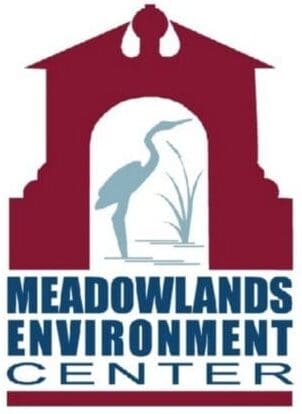Climate Change Professional Development Workshops
Year 2
Please Note: Unless otherwise indicated, workshops are held at the Meadowlands Environment Center in Lyndhurst, NJ.
1. The Climate-Ready Classroom: Professional Development for K-12 Educators (K-5 and 6-12)
Monday July 28, Monday August 4, Saturday October 4 (Warren County Location)
Introduction to the science principles and observational facts of climate change. Includes grade-appropriate hands-on demos and activities on weather and climate; causes of climate change; greenhouse effect; sea level rise; topography and flooding; effects on wildlife and plants in the Meadowlands marsh. Teachers will receive a supply bag to get started in their classrooms. Lesson planning for activities for teachers to include these activities in their school districts and encourage student learning experiences in their community.
2. Beyond the Basics: Local to Global Climate Impacts and Classroom Applications (K-5 and 6-12)
Tuesday July 29, Tuesday August 5, Saturday October 25 (Essex County Location)
For those teachers already with some background on climate change science. The workshop will further explore the consequences of climate change locally and globally, inclusive of understanding how it affects social justice. Includes grade-appropriate hands-on demos and activities on oceanic, estuarine and marsh effects (temperature, acidification, biologic range shifts, food-webs); local forests and agriculture (tree rings, plant zones, pollination); wildlife responses; how radiation absorbed by a substance affects climate and weather; and migrations of wildlife – especially birds in the meadowlands. Teachers will receive a supply bag and lesson plans to get started in their classrooms. Lesson planning for activities for teachers to include these activities in their classroom, school district, and encourage student learning experiences in their community.
3. Energy and Resources (separate K-5 and 6-12) PD, “ELO, Educator”
Wednesday July 30, Wednesday August 6, Saturday November 15 (Bergen County Location)
These sessions will explore our use of energy, natural resources and the wastes that often result. Hands-on activities, using our “LEEDS Platinum” building to study sustainable building practices will guide students in considering current and future behaviors with a conservation mindset, inclusive of careers awareness of those who do this work in our communities. Elementary lessons will also focus on energy, water, and waste habits (water conservation, building for the elements – wind and water, building a 3-D house model that used solar energy). MS/HS will also focus on energy efficient design and renewable options (carbon footprints, simple climate modeling, debate on solutions, construction of a “Green Home”). Activities for teachers to include these activities in their classroom, school district, and encourage student learning experiences in their community.
4. Telling Climate Stories through Infographics (K-12) PD, “ELO, Educator”
Thursday July 31, Thursday August 7, Saturday December 6
Infographics are engaging visualizations of what can be complex data and information, especially related to climate topics (social justice, blue and green communities, etc). This session will highlight the power of infographics as teaching and learning tools and present the primary formats used to communicate relationships. Working with grade-appropriate data sets from various phenomena related to climate change such as NJ temperatures, sea level rise, NJ floods, invasive species in NJ, land use in the Meadowlands, changes in animal populations and numbers i.e. polar bears. Groups will craft creative infographics to share climate stories on these topics. Teachers will spend time lesson planning for students to create their own infographics reflective of their own communities to demonstrate understanding of their local climate change stories and advance their visual literacy.
5. Climate Change, Human Health, and Engagement for All (K-12) PD
Friday August 1, Friday August 8, Saturday March 1 (Hudson County Location)
Current climate patterns predict human health consequences. Those burdens will not be equally shared, but we are all accountable. This session will explore both the science issues, including social justice, as well as accessibility for all learners. We’ll model the urban heat island effect, examine related health issues (increasing air pollution, the spread of infectious disease, increased food and water-borne disease, and an increase in frequency and severity of natural disasters), and visualize tick and mosquito life cycles. We’ll also delve into Universal Design for Learning and strategies for engaging diverse populations. Teachers will collaborate to create solutions-oriented lessons that directly engage their students’ experiences and communities giving teachers tools or ideas for the turn-key experience to be solutions oriented for students.
